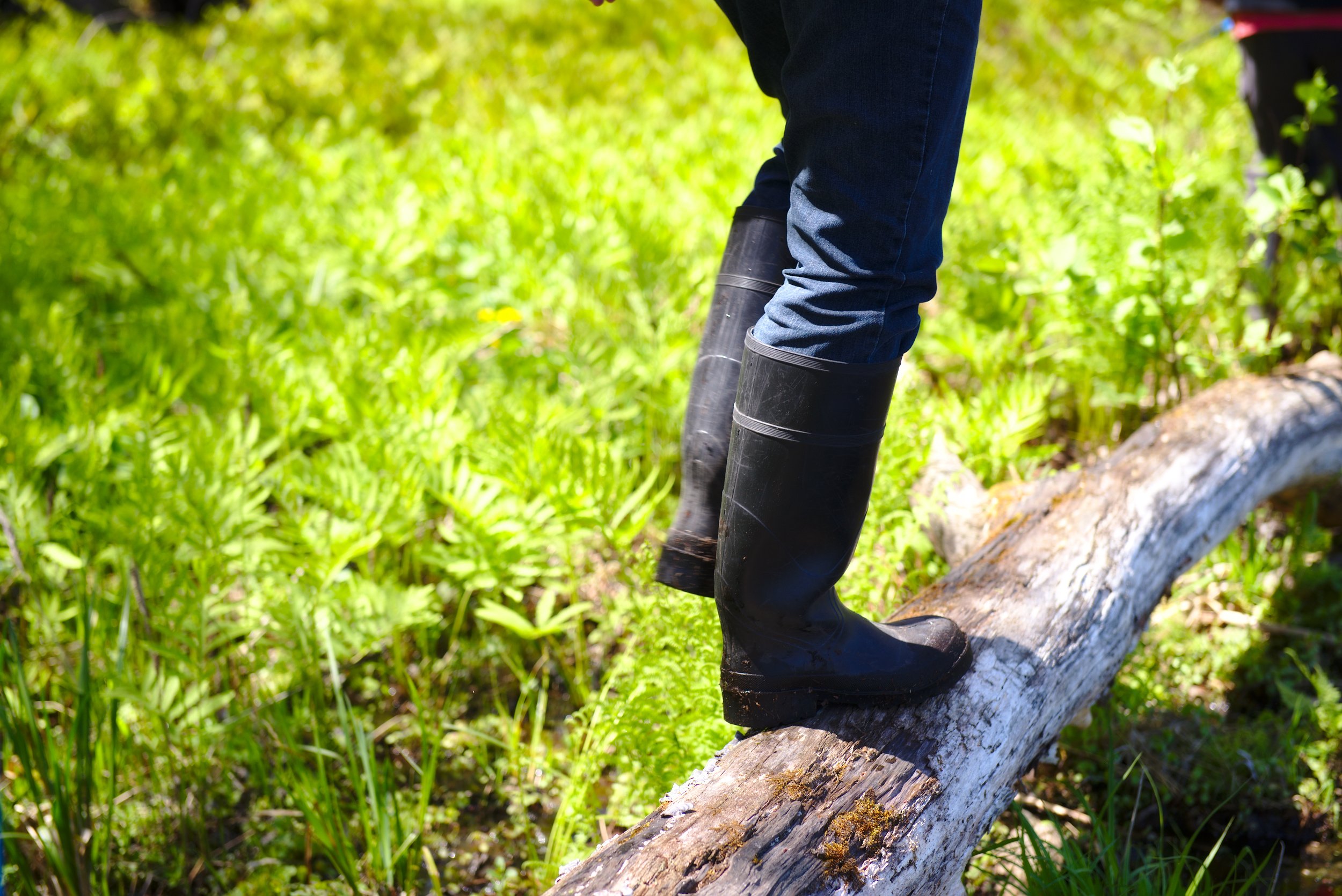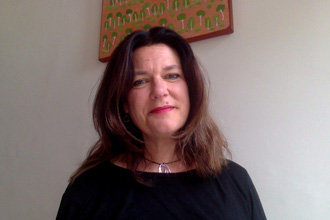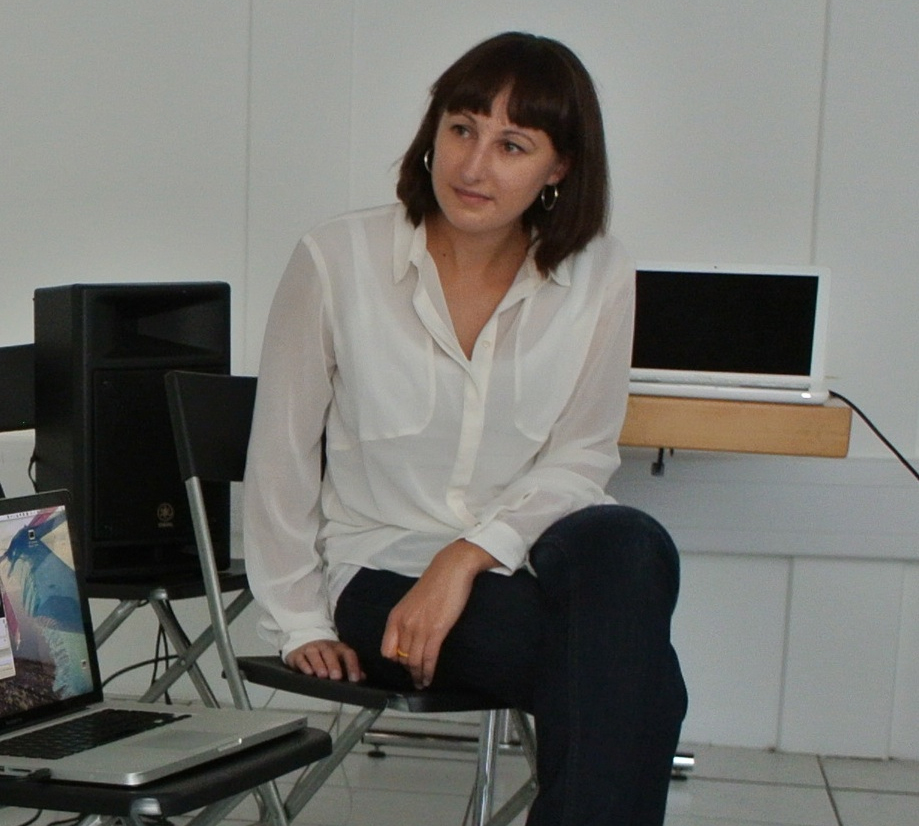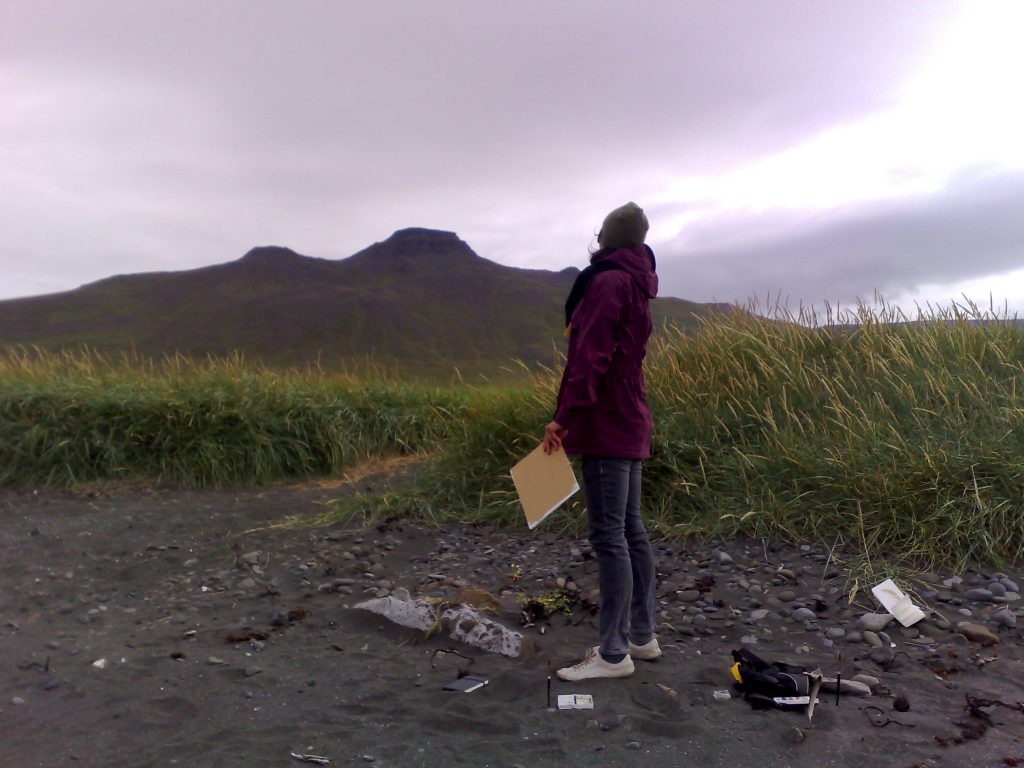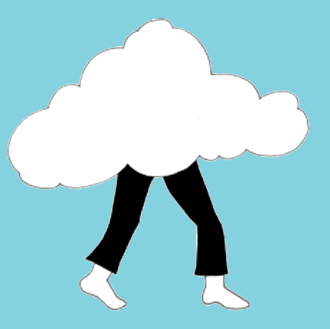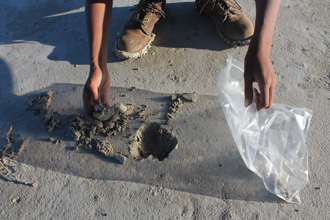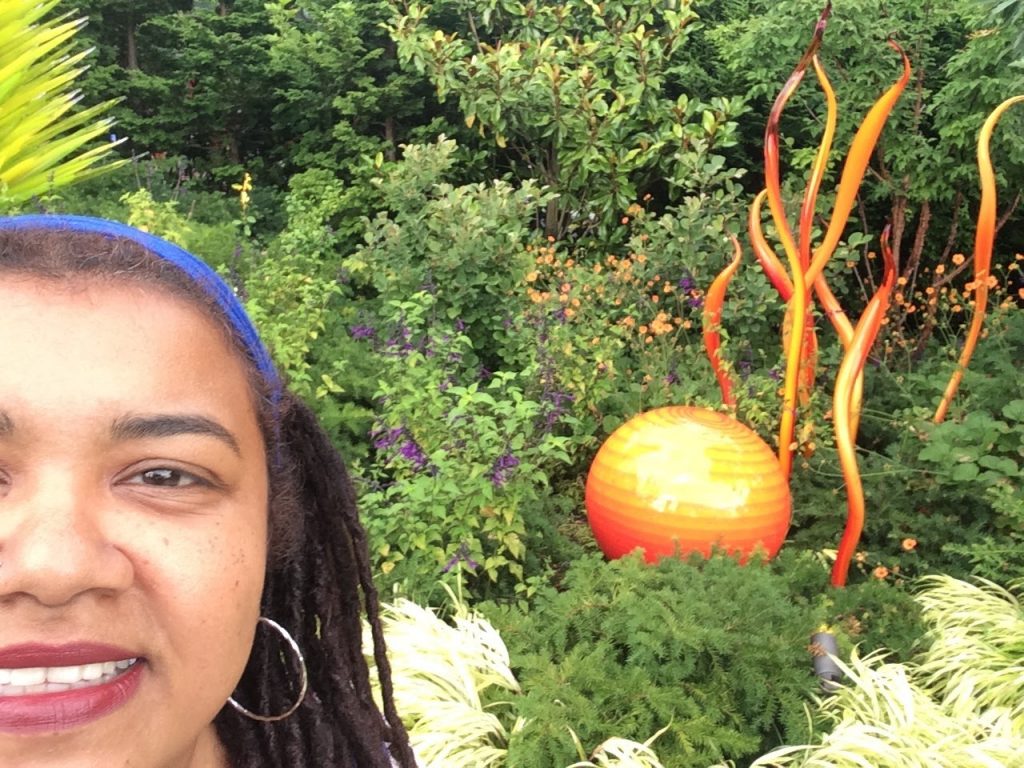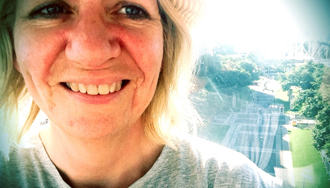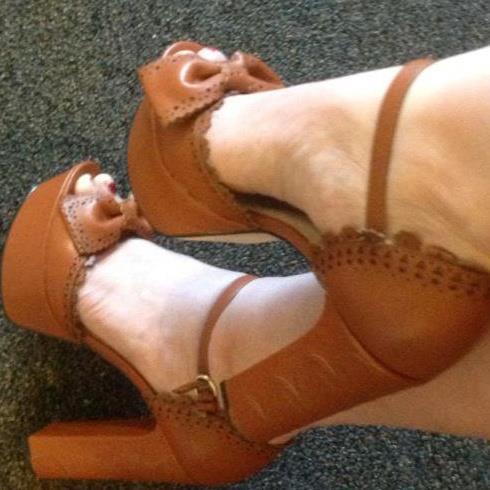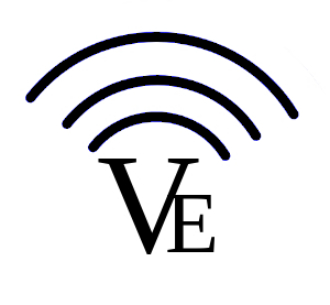4elements Living Arts is a community arts organization based on Manitoulin Island | Mnidoo Mnising. We do land-based work through a range of community programs, including walking projects, a site-specific festival, environmental art education, and a newly launched Institute for Land | Art Studies that integrates the conceptual approaches, skills-based learning, and on the ground engagement that can help re-imagine our relations to the land. Founded in 2002 by Sophie Edwards (whose rubber boots feature in our pic), 4e is supported by the Ontario Arts Council, the Ontario Trillium Foundation, Northern Ontario Heritage Fund, and a whole bunch of keen local walkers, art-makers, and land lovers.
Read their blogs here.
Mindy Blaise is Professor of Early Childhood Education in the College of Education, Victoria University, Melbourne. She is a founding member and principal researcher of the Common Worlds Childhood Research Collective (www.commonworlds.net). She situates her work within postfoundational perspectives to trouble taken-for-granted knowledges that dominate the field of early childhood. She is currently experimenting with feminist materialist practices to reconsider human ontology and to explore how new tanglings of relations emerge when 21st Century childhoods and the-more-than come together.
Read her blogs here.
Rebecca Coleman is Senior Lecturer in the Sociology department, Goldsmiths, University of London. She is currently working on a multi-media project that develops sensory and inventive methods for researching temporality and futures in particular. Part of this research will be published as a book – Engaging Futures: Methods, Materials, Media (under contract, Goldsmiths/MIT Press, Future Media series). Other aspects of and more information on the research are included here. This specific project develops work on bodies, images, affect and interdisciplinary research methodologies, including ‘Futures in Question: Theories, Methods, Practices’ (special issue of Sociological Review, edited with Richard Tutton, 2016), Deleuze and Research Methodologies (edited with Jessica Ringrose, 2013), Transforming Images: Screens, Affect, Futures (2012) and The Becoming of Bodies: Girls, Images, Experience (2009).
Read her blogs here.
Sarah Cullen is an artist currently based in Toronto. She has a BFA from OCADU and a MA Geography from Queen Mary, University of London. Her work has been exhibited internationally.
Sarah will be working alongside her four year old daughter to develop a new piece of work during her time on the WalkingLab residency. She will be combining past and present interests - including walking as both method and practice explored though art and geography, co-working and co-learning with children, and object biography.
Read her blogs here.
The Hamilton Perambulatory Unit (HPU) is a group of artists based in Hamilton, Ontario. Members of the HPU meet to perambulate alleys, along the Bruce Trail to waterfalls, and through the city's quickly gentrifying downtown to explore walking in conjunction with artistic practices and research-creation. The focus of each perambulation is a sensory exploration of the city/self in relation with a pre-read text, artistic notion, or philosophical work, and some enabling constraints (eg. in a set neighbourhood, or by using instruments of chance). Each gathering is "led" by a different educator, artist or writer.
The HPU's founding members and bloggers for WalkingLab's Residency are Donna Akrey, Taien Ng-Chan, and Sarah E. Truman.
Read their blogs here.
The Helio Butler Institute for intraterrestrial survival is an art and research collective interested in investigating experiential interactions between people and places. HBI was created in 2015 by two people inspired by the storytelling of Octavia Butler and the art of Hélio Oiticica. Since then, researchers-at-large have studied and explored locations considered both place and non-place, and have interacted with beings considered both human and non-human. In charting and compiling such interactions, HBI constellates a repository of literature, public tours, discussions, archives and queries into interpolated space.
Read their blogs here.
Audrey Hudson an Assistant Professor at OCAD University in the Faculty of Design. Her thesis was entitled, “Decolonizing Indigenous Youth Studies: Photography and Hip Hop as Sites of Resilience”. Audrey is an artist/designer, educator and researcher who believes the arts are a way to begin decolonizing post-secondary education by discussing histories of colonization, race, representation and sovereignty. The focus of Audrey’s WalkingLab residency is on land, race, community and Indigeneity. She will approach the theme with students in her class at OCAD University.
Read their blogs here.
Social activism underpins Linda’s work on pedagogic sites, radical pedagogies, and feminist investigations of the academy. Linda creates art as a social practice, to explore affect, movement and power and the ways that art, philosophy, and theory help establish critical, pedagogic, and methodologic practices. Linda has exhibited in Australia, New Zealand, Canada, USA and UK and her work is held in private collections globally. Linda is currently thinking with feminist materialist perspectives to create and experiment with counter-logics in early childhood edcuation. Linda is in the School of Early Childhood at Queensland University of Technology.
Read her blogs here.
Mapping Edges (Ilaria Vanni & Alexandra Crosby) is a transdisciplinary research studio with expertise in design and cultural research, ethnography, visual communication, design thinking and permaculture. We are inspired by and apply permaculture design principles to a variety of contexts, generating a holistic understanding and possibilities of intervention to create sustainable, abundant and stable systems. We experiment with edges as transition zones between different ecosystems; interfaces between mediums, projects and processes on the margin of activities where it is possible to cross-pollinate, tinker and develop alternatives. We map what happens at the edge of cultural processes and practices, where the local grips the global, and the global is grounded in the local. We identify what emerges from encounters happening in an edge. We create spaces of transitions: spaces where the multiplicity of people, things, plants, animals, technologies, ideas can generate a swirl. We develop methodologies to make sense of the present and imagine counterpoints for the future.
Read their blogs here.
Elaine Swan is a senior lecturer at UTS in the school of communication where she brings feminism, critical race theory and studies of work to bear on two projects: food pedagogies and the sociology of workplace psychologies. At the moment, she is thinking about body work in two very different sites - food tourism and executive coaching. The focus for her WalkingLab Residency is walking and work, with a particular focus on ethnic food tours in Western Sydney. She has recently published an edited book with Rick Flowers on Food Pedagogies, and is currently writing papers about representation as work; postfeminism, whiteness and coaching; and crying, body work and coaching. With Maud Perrier from Bristol University, and Rick Flowers, UTS, she is establishing an international network on feminist and critical race studies of food, work and organising. Until her knees became angry, she liked walking in clompy wedges and spindly heels.
Read her blogs here.
The Voice Exchange is an artistic collective and sub-group of the Digital Dramaturgy Lab (University of Toronto) focused on explorations of voice and sound. Led by Sebastian Samur, its members rotate regularly with each project. Previous explorations include work on vocal training techniques and work with digitized voices. In 2015, at the Corps en Scene: L'Acteur Face aux Ecrans conference (Nouvelle Sorbonne Paris III), the group presented results from its work on digital voices and the concept of a 'vocal mask' for aiding in collaborations between sound designers and performers. With The Ghost Variations, the group is looking at heightening sonic awareness of space through the use of layered audio tracks. Current participating members include Sune Mortensen, Tony Nardi and DDL sound designer, Richard Windeyer.
Read their blogs here.
